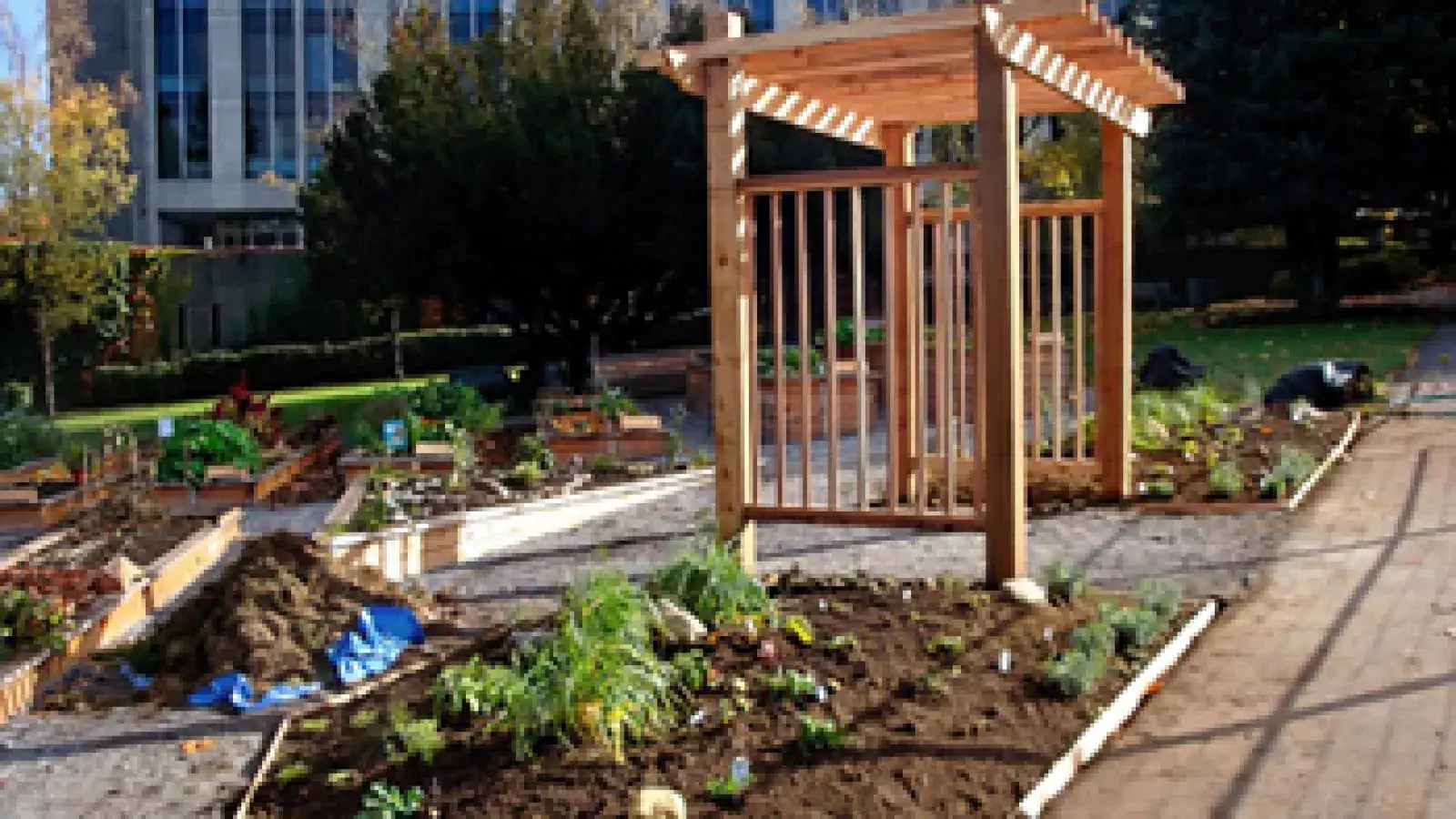Spring is in the air, and for many that means getting outside and working in the garden. For those city dwellers, Vancouver offers an amazing abundance of community gardens that do far more than just satisfy the green thumb in you – they help to strengthen community ties, provide educational opportunities and make cities more livable by promoting sustainability and urban greening.
Community gardens are not a new idea. In fact, they have existed since cities began and peaked in Canada during the two World Wars. In 1943, there were over 50,000 Victory Garden plots in Greater Vancouver, the food from which helped to provide residents with fresh fruits and vegetables and alleviate food shortages. The number of community gardens made a comeback again in the 1980s and have been sprouting up around the city ever since.
As Vancouver grows and becomes more densely populated, the number of people without access to private green space also grows, this results in an ever increasing demand for urban gardens. Conveniently located on parks and schools, private and public land, today, there are over 4,000 people tending more than 40 community or resident-shared gardens containing over 1,700 new garden plots.
In fact, some community gardens have become so popular that many now have waiting lists such as Pine Street Community garden. With 45 garden plots and 27 orchard plots, Pine Street is one of Vancouver’s newest gardens – opening in 2006. But to get a plot, you’ll have to be patient because there are over 70 people on the wait list.
Vancouver has become so progressive in its community garden initiatives that in May 2006, Vancouver City Council passed a motion to encourage the creation of over 2,010 new garden plots by January 1st, 2010. As a legacy of the 2010 Winter Olympic and Paralymic Games, these gardens are to promote sustainability as a long term solution to urban living and planning.
Some Key Benefits of Community Gardens
- Health gains by reducing stress by getting outdoors and being active
- Know your neighbours and create a sense of belonging
- Environmental benefits by managing noise, pollution and climate change
- Educational opportunities. Understand where your food comes from
- Cross culture integration as neighbours work side by side.
- Urban improvements through beautification and the re-instating of wildlife habitats
Helping the planet - one tomato at a time.
Community gardens address personal health, economic, environmental, and cultural issues. These gardens are also a safe haven for the human spirit.
Discover for yourself the benefits of community gardens and urban farming by visiting green living online.
Kim Robertson



